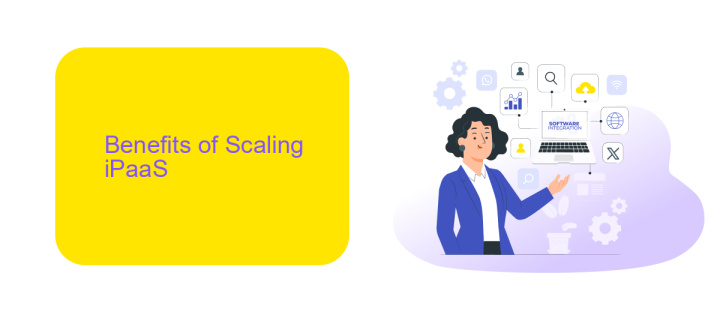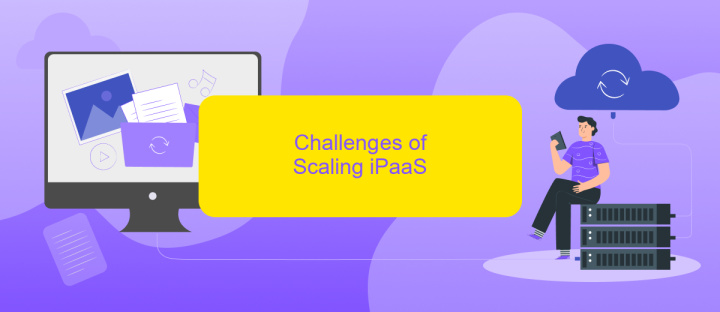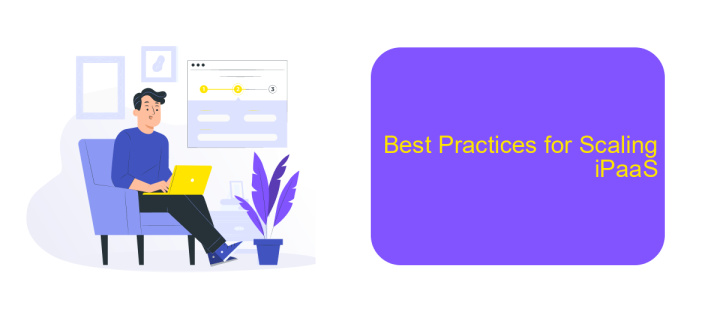iPaaS Scaling
In today's rapidly evolving digital landscape, businesses are increasingly turning to Integration Platform as a Service (iPaaS) solutions to streamline their operations and enhance connectivity. As organizations grow, the ability to scale these integrations becomes crucial. This article explores the strategies and best practices for effectively scaling iPaaS to meet the dynamic needs of modern enterprises.
Introduction
As businesses grow and evolve, the need for seamless integration between various applications and services becomes critical. Integration Platform as a Service (iPaaS) solutions offer a scalable way to connect disparate systems, streamline workflows, and enhance operational efficiency.
- Automated data synchronization
- Real-time data processing
- Scalable infrastructure
- Enhanced security measures
One such solution is ApiX-Drive, which enables businesses to easily set up and manage integrations without extensive technical expertise. By leveraging platforms like ApiX-Drive, organizations can ensure that their systems are not only interconnected but also capable of scaling in response to growing demands. This flexibility is essential for maintaining a competitive edge in today's fast-paced digital landscape.
Benefits of Scaling iPaaS

Scaling iPaaS (Integration Platform as a Service) offers numerous benefits for businesses looking to streamline their operations and enhance efficiency. One of the primary advantages is the ability to handle increased data volumes and complex workflows without compromising performance. This scalability ensures that as a company grows, its integration capabilities can expand seamlessly, allowing for smooth data flow between various applications and systems. Additionally, scaling iPaaS reduces the need for manual interventions, thereby minimizing errors and improving overall accuracy.
Another significant benefit of scaling iPaaS is the flexibility it provides in integrating new applications and services. For instance, platforms like ApiX-Drive facilitate easy and quick setup of integrations, enabling businesses to adapt to changing requirements and incorporate new tools effortlessly. This adaptability is crucial for staying competitive in today's fast-paced market. Moreover, scaling iPaaS can lead to cost savings by optimizing resource usage and reducing the need for extensive IT infrastructure. Overall, the ability to scale iPaaS effectively supports business growth, agility, and operational excellence.
Challenges of Scaling iPaaS

Scaling an iPaaS (Integration Platform as a Service) presents several challenges that organizations must navigate to ensure seamless and efficient integration processes. As businesses grow, the complexity and volume of data integrations increase, requiring robust solutions to handle the expanding workload.
- Data Volume and Complexity: Managing large volumes of data and complex integrations can strain the iPaaS infrastructure, leading to performance bottlenecks.
- Security and Compliance: Ensuring data security and compliance with regulations becomes more challenging as the number of integrations and data points increase.
- Scalability of Services: The iPaaS must scale effectively to accommodate growing business needs without compromising performance or reliability.
- Integration Maintenance: Keeping integrations up-to-date and managing dependencies can become increasingly difficult as the integration landscape evolves.
- Cost Management: Balancing the cost of scaling the iPaaS with the benefits it provides is crucial for sustainable growth.
To address these challenges, leveraging tools like ApiX-Drive can be beneficial. ApiX-Drive simplifies the integration process by providing a user-friendly interface and automation capabilities, ensuring that scaling iPaaS remains manageable. By automating routine tasks and offering robust support, ApiX-Drive helps organizations maintain efficient and secure integrations even as they scale.
Best Practices for Scaling iPaaS

Scaling your iPaaS solution effectively requires a strategic approach to ensure seamless integration and performance. Begin by evaluating your current infrastructure and identifying potential bottlenecks that could hinder scalability. This step is crucial for understanding where improvements are needed.
Next, prioritize automation to handle increased data volumes and integration tasks efficiently. Implementing automated workflows and monitoring tools can significantly enhance your system's ability to scale without compromising performance. Consider leveraging services like ApiX-Drive, which offer robust integration capabilities and automation features to streamline your processes.
- Regularly monitor system performance and resource utilization.
- Optimize data flow and minimize latency.
- Implement load balancing to distribute workloads evenly.
- Ensure robust error handling and retry mechanisms.
- Continuously update and test your integration solutions.
Lastly, maintain clear documentation and training for your team to ensure they are well-equipped to manage and scale your iPaaS environment. By following these best practices, you can achieve a scalable, efficient, and resilient integration platform that meets your growing business needs.
Conclusion
In conclusion, scaling iPaaS solutions is essential for businesses aiming to streamline their integration processes and enhance overall efficiency. The ability to manage increasing data volumes and complex workflows without compromising performance is crucial. Implementing robust iPaaS platforms ensures seamless connectivity between various applications, allowing organizations to adapt quickly to changing market demands.
Services like ApiX-Drive play a pivotal role in this ecosystem by providing user-friendly tools for setting up and managing integrations. With its intuitive interface and extensive support for various applications, ApiX-Drive simplifies the process of automating workflows, enabling businesses to focus on growth and innovation. As companies continue to expand, investing in scalable iPaaS solutions will be instrumental in maintaining operational agility and achieving long-term success.
FAQ
What is iPaaS and how does it help with scaling?
How can iPaaS improve the performance of my business operations?
What are some common use cases for iPaaS?
Is it difficult to implement iPaaS solutions in my existing IT infrastructure?
Can iPaaS handle real-time data processing?
Time is the most valuable resource in today's business realities. By eliminating the routine from work processes, you will get more opportunities to implement the most daring plans and ideas. Choose – you can continue to waste time, money and nerves on inefficient solutions, or you can use ApiX-Drive, automating work processes and achieving results with minimal investment of money, effort and human resources.

